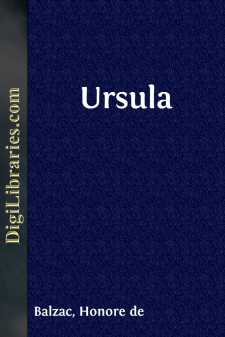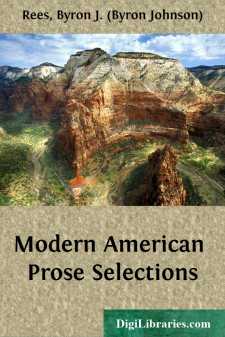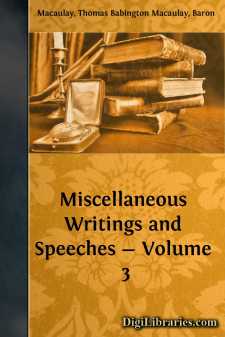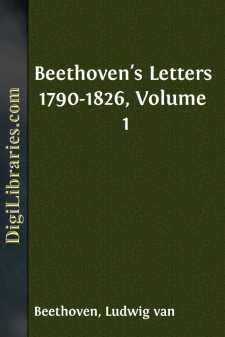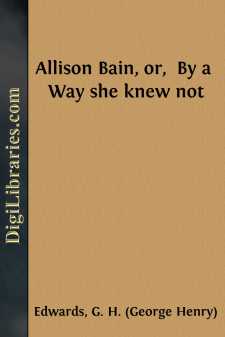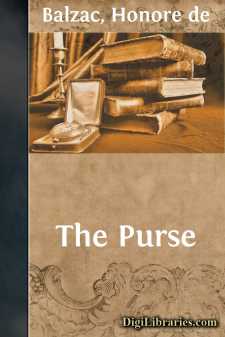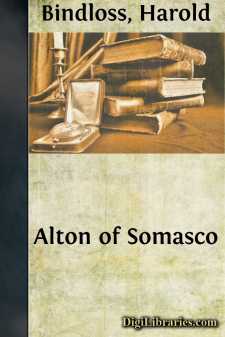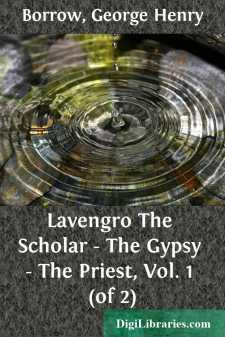Literary Collections
- American 84
- Ancient, Classical & Medieval 14
- Asian 1
- Australian & Oceanian 1
- Canadian 55
- Continental European 121
- English, Irish, Scottish, Welsh 179
- Essays 160
- General 24
- Letters 46
- Middle Eastern 1
Literary Collections Books
Sort by:
by:
Honore de Balzac
I. THE LORRAINS At the dawn of an October day in 1827 a young fellow about sixteen years of age, whose clothing proclaimed what modern phraseology so insolently calls a proletary, was standing in a small square of Lower Provins. At that early hour he could examine without being observed the various houses surrounding the open space, which was oblong in form. The mills along the river were already...
more...
by:
Honore de Balzac
CHAPTER I. THE FRIGHTENED HEIRS Entering Nemours by the road to Paris, we cross the canal du Loing, the steep banks of which serve the double purpose of ramparts to the fields and of picturesque promenades for the inhabitants of that pretty little town. Since 1830 several houses had unfortunately been built on the farther side of the bridge. If this sort of suburb increases, the place will lose its...
more...
PREFACE As the reader, if he wishes, may discover without undue delay, the little volume of modern prose selections that he has before him is the result of no ambitious or pretentious design. It is not a collection of the best things that have lately been known and thought in the American world; it is not an anthology in which "all our best authors" are represented by striking or celebrated...
more...
FRANCIS ATTERBURY. (December 1853.) Francis Atterbury, a man who holds a conspicuous place in the political, ecclesiastical, and literary history of England, was born in the year 1662, at Middleton in Buckinghamshire, a parish of which his father was rector. Francis was educated at Westminster School, and carried thence to Christchurch a stock of learning which, though really scanty, he through life...
more...
FIRST PART. LIFE'S JOYS AND SORROWS.1783 TO 1815. 1.TO THE ELECTOR OF COLOGNE, FREDERICK MAXIMILIAN. ILLUSTRIOUS PRINCE,-- Music from my fourth year has ever been my favorite pursuit. Thus early introduced to the sweet Muse, who attuned my soul to pure harmony, I loved her, and sometimes ventured to think that I was beloved by her in return. I have now attained my eleventh year, and my Muse often...
more...
Chapter One. “Was she wrong?Is it wrong in the bird to escape from the snare of the fowler?Is it wrong in the hunted deer to flee to the screening thicket?” Mr Hadden was standing at the open door of the manse, waiting patiently, while his housekeeper adjusted his grey plaid on his shoulders in preparation for a...
more...
by:
Honore de Balzac
THE PURSE For souls to whom effusiveness is easy there is a delicious hour that falls when it is not yet night, but is no longer day; the twilight gleam throws softened lights or tricksy reflections on every object, and favors a dreamy mood which vaguely weds itself to the play of light and shade. The silence which generally prevails at that time makes it particularly dear to artists, who grow...
more...
THE BEGINNINGS OF TRACTARIANISM During the first years of my residence at Oriel, tho proud of my college, I was not quite at home there. I was very much alone, and I used often to take my daily walk by myself. I recollect once meeting Dr. Copleston, then Provost, with one of the Fellows. He turned round, and with the kind courteousness which sat so well on him, made me a bow and said, Nunquam minus...
more...
by:
Harold Bindloss
CHAPTER I THE FIRST ENCOUNTER It was snowing slowly and persistently, as it had done all day, when Henry Alton of Somasco ranch stood struggling with a half-tamed Cayuse pony in a British Columbian settlement. The Cayuse had laid its ears back, and was describing a circle round him, scattering mud and snow, while the man who gripped the bridle in a lean, brown hand watched it without impatience,...
more...
There have been many Romany Ryes, or “Gypsy Gentlemen,” as Gypsies designate those who, though not of their race, yet have loved that race, and have mastered the Romany tongue. The first is one of the oddest—Andrew Boorde (c. 1490-1549). Carthusian, traveller, physician, and, perhaps, the original Merry Andrew, he got into trouble over certain delinquencies, and died a prisoner in the Fleet...
more...



